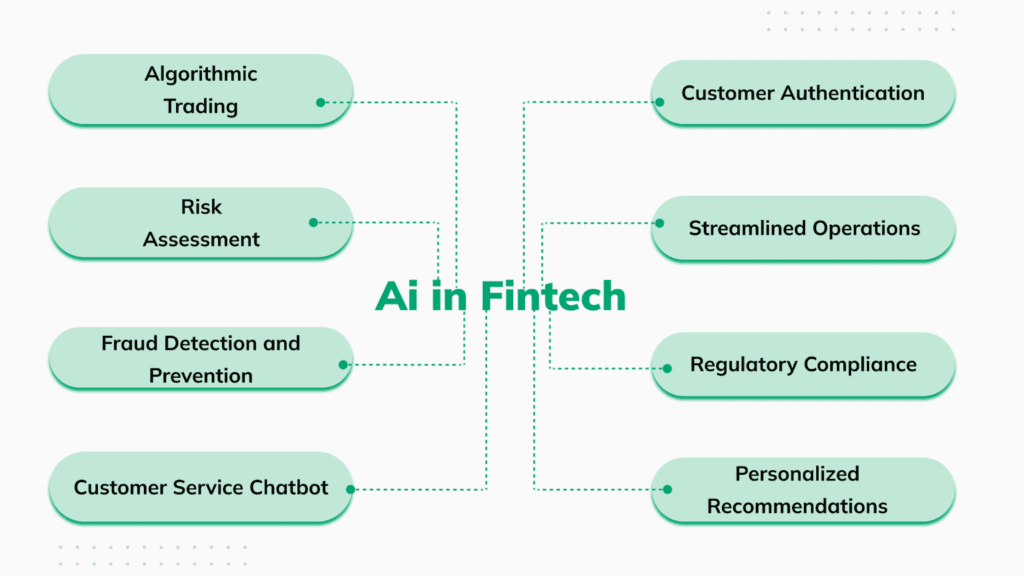Fintech Software is changing the future of traditional banking. The way people and businesses manage their finances, from payments & transfers to lending & investments is pretty simple now.
Well, everything seems easy while operating these apps as everything gets done at a single tap. However, the process of developing such software is challenging and time-consuming. It requires a lot of research, compliance, testing, analysis, and innovation. In such situations, businesses want their app/software to enter the market ASAP and generate profits to cover the costs.
That’s why companies need to buckle up on the financial software development process, without missing out on quality, security, and user experience.
Wondering how you can fasten the procedure?
Here’s a detailed info bubble to help you throughout the journey.
Factors affecting the speed of fintech software development
Complexity:
The speed of building software depends on how complicated the project is. There are two types of complexity: technical and structural.
- Technical Complexity: This is about how tricky it is to use the technology and design features needed for the software. It includes things like connecting to other systems, using modern tools, and meeting the needs of the people who will use the software. Understanding these technical challenges helps plan how long the project will take.
- Structural Complexity: This is about how many different parts the software has, like how workflows are set up and who’s involved in the project. Managing a project with lots of parts takes more time and effort to make sure everything goes smoothly. Projects like this need careful management to be successful.
Availability of time and resources:
The availability of time and financial resources is a critical factor in fintech software development solutions. Estimating the project’s final cost can be challenging and depends on various factors such as the type of software, the size and expertise of the development team, and the project’s location. It’s essential to manage these resources efficiently to ensure the project stays on track and within budget.
Development Team:
The success of a fintech development project heavily relies on the expertise and efficiency of the development team. Collaborating with skilled and experienced professionals specializing in fintech can significantly accelerate the development process. Each team member brings unique skills, experience, and work speed to the table, so it’s crucial to assemble a team that aligns with the project’s requirements and goals. Hiring Fintech Application Developers from Top Companies can expedite software development and ensure high-quality outcomes.
Requirements of the software:
Clear and well-defined requirements are essential in fintech software development. They serve as a roadmap, guiding the development process toward achieving desired outcomes efficiently. Unclear or ambiguous requirements can lead to delays and misunderstandings, hindering progress. Analyzing business needs thoroughly before starting development ensures faster implementation and better alignment with project goals.
Also, read Things You Need To Know About FinTech Software Development.

Strategies to Speed Up Your Financial Software Development in 2024
Identify the Main Problem:
Start by focusing on solving the core problem that your product addresses for customers. By prioritizing the main problem, you can deliver a Minimum Viable Product (MVP) with essential features quickly, ensuring that your unique solution reaches the market faster and maintains its uniqueness for longer, thus capturing more market share.
Clarify your Development Strategy:
Having a clear goal necessitates a detailed plan outlining precise steps, resource allocation, and milestones. This clarity expedites decision-making, reduces unnecessary iterations, and enhances team collaboration. A well-structured project strategy mitigates risks such as data loss and schedule changes, enabling startups to meet deadlines effectively. For instance, realistic schedules and contingency plans safeguard against potential setbacks, ensuring smooth software development and timely delivery to the market.
Reduce, Reuse, and Repurpose:
Optimize development efforts by leveraging existing code, utilizing no-code website or app builders, and automating tasks with third-party tools. Additionally, adopt a modular design approach to facilitate the reuse and repurposing of product modules, enabling rapid development of subsequent products while reducing time and cost.
Choose the Right Tech Stack:
Selecting the appropriate tech stack is crucial for efficient custom software development, as it determines the tools, languages, and frameworks used. This decision impacts the speed, scalability, and feasibility of your product. Prioritize speed, scope, and practicality when choosing your stack. What’s more is beware of technical debt, which arises from opting for quick solutions over better, albeit more time-consuming, approaches. While it may accelerate development initially, addressing technical debt later can be costly and time-consuming. Therefore, strive to write quality code from the outset to mitigate future challenges.
Monitor and Analyze Development Progress:
Tracking and analyzing the development process is essential for Fintech startups to ensure the effectiveness and efficiency of their strategies. By selecting the right Key Performance Indicators (KPIs), startups can measure progress and identify areas for improvement early on, saving time and resources. Additionally, applying analysis and measurement across all teams promotes agility and enables informed decision-making. This collaborative approach ensures that everyone is aligned and focused on achieving the startup’s goals efficiently.
Take Early Feedback from Users:
Early user feedback is crucial for Fintech startups as it allows them to identify and address potential issues or improvements in real time. This iterative feedback loop ensures that the product aligns with user expectations, leading to quicker adjustments and iterations. By soliciting feedback early in the development process, startups can minimize the need for extensive revisions later on, resulting in a more refined and user-centric product.
Agile Development Methodology:
Favored by most developers, Agile development helps with flexibility, speed, and efficiency. Adopt an agile methodology like Scrum or Kanban for software development. These approaches prioritize iterative development, frequent feedback, and collaboration among cross-functional teams. Agile practices enable faster FinTech software development and facilitate adaptation to evolving requirements.
Prioritize Security:
As they say, Prevention is better than cure. Paying attention to the security of fintech software is a must, given the sensitivity of customer financial and personal data. Forbes reports that approximately 60% of small and medium-sized businesses cease operations within 6 months of a cyberattack.
Thus, your development team should prioritize safety alongside functionality in fintech software engineering. By implementing robust security measures, you can mitigate the risks associated with cyber threats and safeguard your business and customers from potential harm.
Continuous Integration and Deployment (CI/CD):
Implementing CI/CD pipelines automates the build, testing, and deployment processes in software development. This allows developers to integrate code changes frequently, automate testing, and deploy updates quickly. By streamlining these processes, CI/CD pipelines foster collaboration, minimize manual errors, and ensure a smooth software delivery workflow. Ultimately, they contribute to accelerating FinTech software development, enabling efficient delivery of high-quality software solutions.
Use Ready-Made Solutions from Fintech Software Development Experts:
The easiest way to speed up the software development process is to collaborate with an expert fintech software development company. Using a pre-built solution tailored to your business requirements can expedite software development significantly. With access to ready-made software, you can bypass the initial stages and leverage a dependable fintech framework to customize and enhance your product efficiently. For instance, SDK.finance offers cloud-hosted backend software with an API layer, enabling swift development of your payment product to meet market demands promptly.
How AI will help in Fintech Software Development in 2024?
Do you know? According to the latest Economist Intelligence Unit adoption study, 54% of Financial Services organizations have adopted AI. These adoptions across various domains are exemplary. Some major use cases of AI in fintech app development include:
1. Robotic Process Automation (RPA)
RPA utilizes software bots to automate repetitive tasks like new customer onboarding, security verification, and trade finance processing. By automating these processes, fintech companies can improve efficiency and focus on innovation and value-added services.
2. Personalization
AI algorithms analyze diverse data sources to offer insights into customer preferences and behavior. Through machine learning, fintech apps can tailor marketing efforts and deliver personalized solutions to users based on their financial habits and needs.
3. AI-Powered Financial Advisor
AI-driven digital assistants analyze users’ financial data to offer personalized financial advice and asset management services. Leveraging Natural Language Processing (NLP), these assistants study transaction patterns to suggest suitable financial products and services, revolutionizing personal finance management.
4. Automated Customer Support
The chatbot in the banking, financial services, and insurance (BFSI) market is forecasted to reach a value of 6.83 billion U.S. dollars. Enhanced by AI in cloud-based call center software, this revolutionizes customer support, eliminating waiting times for operator assistance. Chatbot development services offer efficient solutions, catering to inquiries in multiple languages and enhancing user satisfaction.
5. AI Stock Trading
AI-powered robo-advisors analyze extensive datasets to execute trades at optimal prices, enhancing market forecasting accuracy and mitigating risks for trading firms. This integration of AI reshapes stock trading, making it more precise and efficient.
6. Early Fraud Detection
AI plays a crucial role in efficiently identifying fraudulent activities in fintech apps, enhancing security measures, and ensuring a safer financial environment for both institutions and customers. With substantial investments in cybersecurity, AI-driven fraud detection technology helps combat financial fraud effectively.
Final Words:
In a nutshell, speeding up FinTech software development calls for a systematic and step-by-step approach. It is necessary to calculate approximate costs and analyze risks, before initiating the process to avoid technical problems and debts. However, there are certain ways to accelerate Fintech software development, without compromising on the quality and value of your software product. All you need is a well-planned strategy, the right tech stack & methodology, and security protection to begin with product development in no time.
Above all, selecting a professional fintech software development company like DianApps gives you more features and a custom-made solution for your requirements. Our fintech experts are available round-the-clock to assist you and develop your software. So why wait? Get in touch now!










Leave a Comment
Your email address will not be published. Required fields are marked *